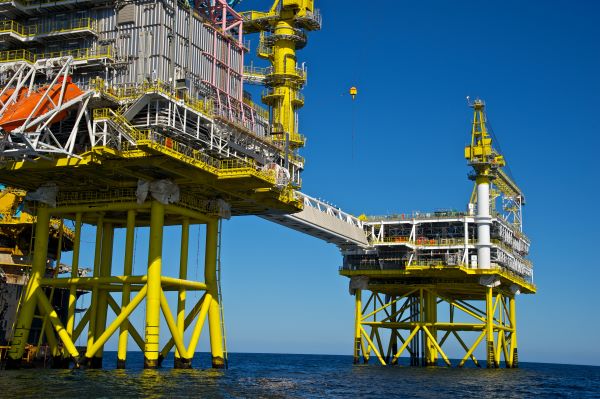ii view: Harbour Energy details transformational 2024
Shares in this FTSE 250 oil and gas company have fallen by close to 90% over the last five years. We assess prospects.
23rd January 2025 11:50
by Keith Bowman from interactive investor

Full-year trading update to 31 December
- Production averaged 258 thousand barrels of oil equivalent per day (kboepd), up from 2023’s 186 kboepd
Guidance:
- Expects 2025 full-year production of between 450 and 475 kboepd
Chief executive Linda Z Cook said:
"2024 was a transformational year with the completion of the Wintershall Dea transaction delivering a step change in our scale and geographic diversification, improving our margins, increasing our reserve life and expanding our resource base significantly.
"Looking to 2025, we will continue to prioritise safe and efficient operations as we complete the integration of our new business units, mature our significant 2C resource base and maintain disciplined capital allocation. With our high quality portfolio, financial strength and strong team, we are well-positioned for continued execution of our strategy."
- Invest with ii: What is a Managed ISA? | Open a Managed ISA | Transfer an ISA
ii round-up:
Oil and gas producer Harbour Energy (LSE:HBR) today detailed trading that broadly matched City expectations, with production for 2025 expected to increase significantly following its 2024 acquisition of Norwegian group Wintershall Dea.
Full-year 2024 production rose to 258 thousand barrels of oil equivalent per day (kboepd) from 2023’s 186,000 and with 2025 output still estimated to come in at between 450 and 475 kboepd. Adjusted group profit (EBITDAX) for 2024 is forecast at $4.1 billion, up from 2023’s $2.7 billion, although pre and post-tax profit is expected to be impacted by material non-cash accounting charges largely due to adverse changes in UK tax.
Shares in the FTSE 250 company fell 5% in UK trading having come into this latest news down around 1% over the last year. That’s similar to the price of Brent crude oil over that time. Oil major BP (LSE:BP.) is down 6% in one year, while the FTSE 250 index is up 8%.
Harbour has operations across Norway, the UK, Germany, Argentina, Mexico, North Africa and South East Asia. The late 2024 additional production contribution from Wintershall Dea helped drive 2024 revenues to $6.1 billion from the prior year’s $3.7 billion.
Expected full-year 2025 unit operating costs, aided by the lower cost production of its new Norwegian assets, are expected to fall to around $14 per barrel of oil equivalent (boe) from $16.5 in 2024.
Harbour expects to pay $455 million in total dividends, comprising a $227.5 million final dividend for 2024 and a $227.5 million 2025 interim dividend. Payments in 2023 equated to a $0.12 interim and a $0.13 final payment.
Broker Morgan Stanley summarised the update as ‘solid’, reiterating its ‘overweight’ stance on the shares. Full-year results are scheduled for 6 March, alongside a Capital Markets Day.
ii view:
Including assets from the former Premier Oil, Harbour today employs around 5,000 people. Norway generates its biggest slug of production at 37%, followed by the UK at 31%, Argentina 13%, North Africa 8%, Germany 6%, and the balance of 5% split evenly between Mexico and SE Asia.
For investors, the high volatility of oil and gas prices combined with the speculative nature of exploration cannot be forgotten. Economic outlook uncertainty and its influence on oil demand and energy prices remains a constant. Government tax changes can impact the business, climate change concerns warrant thought, while the Harbour’s year-end net debt of $4.7 billion (£3.8 billion) compares to a stock market value of £3.9 billion.
- Sign up to our free newsletter for investment ideas, latest news and award-winning analysis
- 19 UK stocks on list of conviction ‘buy’ ideas for 2025
- ii view: will Shell manage significant cost savings in 2025?
To the upside, a diverse geographical footprint exists, with the portfolio under ongoing review and its Vietnam ops recently sold. Potential for industry wide M&A activity persists. The group’s own environmental considerations include reducing the its own CO2 emissions by 50% by 2030 versus 2018, while changes in its debt profile saw rating agencies Moody's, S&P and Fitch all upgrade to investment grades of Baa2, BBB- and BBB- in 2024.
In all, the volatility of energy prices and Harbour’s lack of downstream operations, such as those of Shell (LSE:SHEL), continue to make it more suitable for higher risk investors. That said, a forecast dividend yield of over 6% will likely keep risk-taking income investors interested.
Positives:
- Geographically diverse operations
- Attractive dividend (not guaranteed)
Negatives:
- Volatile oil and gas prices
- Elevated debt
The average rating of stock market analysts:
Buy
These articles are provided for information purposes only. Occasionally, an opinion about whether to buy or sell a specific investment may be provided by third parties. The content is not intended to be a personal recommendation to buy or sell any financial instrument or product, or to adopt any investment strategy as it is not provided based on an assessment of your investing knowledge and experience, your financial situation or your investment objectives. The value of your investments, and the income derived from them, may go down as well as up. You may not get back all the money that you invest. The investments referred to in this article may not be suitable for all investors, and if in doubt, an investor should seek advice from a qualified investment adviser.
Full performance can be found on the company or index summary page on the interactive investor website. Simply click on the company's or index name highlighted in the article.